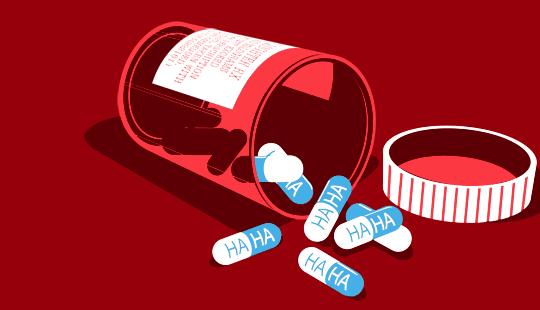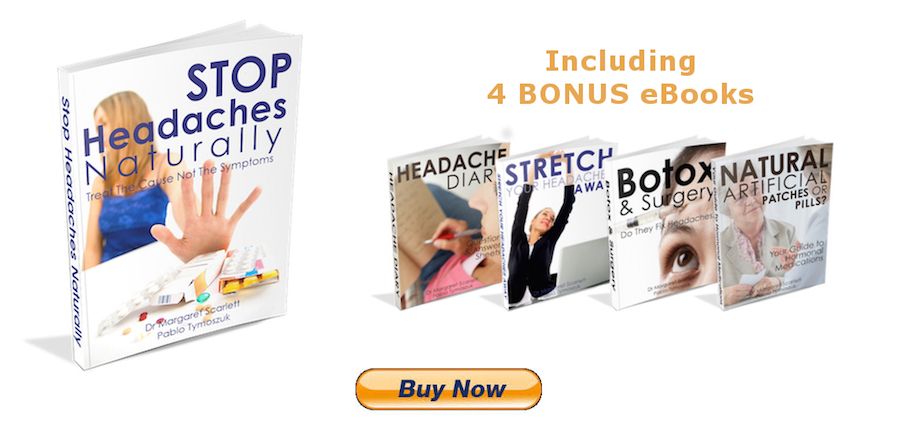Laughter Better Than Medicine And Affects The Body Like Exercise

After a real belly laugh and wiping the tears from my eyes, there is no doubt to me that my mind and body are better for it... even though my ribs hurt, it's as if a weight has been lifted off my shoulders.
I have always believed that laughter is as good as medicine. So when I came across this article by dailyhealthpost.com regarding 'mirthful laughter' [*] and it's health benefits, I was interested. I trust that you find it as interesting as I did.
[*] Mirthful: full of or showing high-spirited merriment
Enjoy the read...
We are rife with involuntary reactions. We know why we sneeze. We know why we cough. We know why we blink our eyes. But we don't really know why we laugh.
Sense of humour is personal but everyone has one. We weren't built with extraneous physiological processes, everything our bodies do has a purpose. So while we may not know why we laugh, we now know that doing so contributes to physical and emotional health.
In the 1970s, Norman Cousins, editor of the Saturday Review, published his story of laughter as medicine in The New England Journal of Medicine. He subsequently published books on the subject of mind-body healing: Anatomy of an Illness, Head First, and Mind Over Illness. In these, he explores his experience of having been diagnosed with life-threatening heart disease in 1964 for which he had self-treated with massive doses of vitamin C and laughter. [1] (Cousins died in 1990). His story spurred scientific research into the psychology of laughter - gelotology. Many studies have now shown that laughter does, in fact , promote wellness.
The results are complex and fascinating.
Laughter appears to occur more frequently and has a greater physical impact when it occurs in a group setting. laughing alone is good but laughing with others is even better. The physical act of laughing causes the release of endorphins-neurotransmitters that moderate pain and stress with an opiate effect.
In a controlled study, pain threshold was significantly higher after laughter than without. [2] Even anticipation of the prospect of "mirthful laughter" reduces stress hormone levels and increases endorphins and human growth hormone (which contributes to optimizing immunity).
A study of high-risk diabetics found that:
“the addition of an adjunct therapeutic mirthful laughter Rx (a potential modulator of positive mood state) to standard diabetes care may lower stress and inflammatory response and increase 'good' cholesterol levels. The authors conclude that mirthful laughter may thus lower the risk of cardiovascular disease associated with diabetes mellitus and metabolic syndrome.” [3]
The benefits of laughter don't stop there.
The physical act of laughter - not just a chuckle, but real, belly-type laughter - is exercise. If you've ever had one of those episodes (and we certainly hope that you have) in which you laugh so hard that you cry and can't breathe, you know that you could be a little sore afterward. Without thinking, the act of laughing promotes various physical activities:
1. Laughter dilates blood vessels, improving circulation, and exercises abdominal, facial and other muscle groups.
2. The release of growth hormones and dopamine in the brain bring a sense of euphoria and happiness - a high that improves not only mood but supports immune function.
3. With the release of hormones and neurotransmitters during and following a bout of laughter, blood sugar and cholesterol levels are reduced. These effects can last for days, especially if laughter is a regular part of your life.
4. With the highs comes the lows - in a good way: improved blood flow and body nourishment, the reduction of stress and pain, and emotional contentment are followed by greater relaxation and better sleep quality.
Science was loth to investigate the phenomenon of laughter until fairly recently. Unlike other involuntary response, it seemed... click here to read the rest of this article.
Source [1] [2] [3]
Pablo Tymoszuk is a soft tissue therapist specialising in remedial, myofascial and dry needling techniques. He also acts as an ergonomic specialist and wellness consultant which has motivated him to co-author the eBook Stop Headaches Naturally.
Together with Dr Margaret Scarlett they present a range of strategies for stopping headaches and migraines without drugs. All strategies are organized in a systematic manner and backed up by references to the scientific literature.





